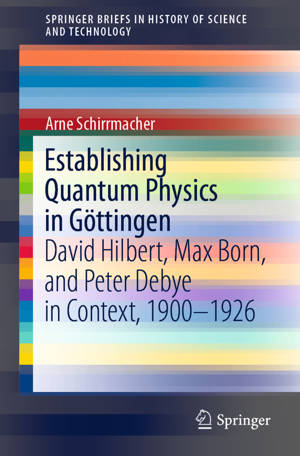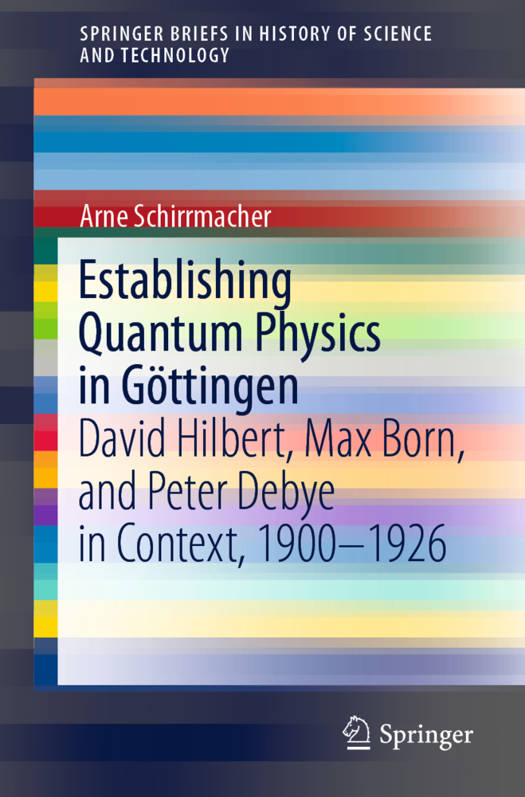
- Afhalen na 1 uur in een winkel met voorraad
- Gratis thuislevering in België vanaf € 30
- Ruim aanbod met 7 miljoen producten
- Afhalen na 1 uur in een winkel met voorraad
- Gratis thuislevering in België vanaf € 30
- Ruim aanbod met 7 miljoen producten
Zoeken
Establishing Quantum Physics in Göttingen
David Hilbert, Max Born, and Peter Debye in Context, 1900-1926
Arne Schirrmacher
€ 68,95
+ 137 punten
Omschrijving
Quantum mechanics - the grandiose theory that describes nature down to the submicroscopic level - was first formulated in Göttingen in 1925. How did this come about and why is it that Göttingen became the pre-eminent location for a revolution in physics? This book is the first to investigate the wide range of factors that were pivotal for quantum physics to be established in Göttingen. These include the process of generational change of physics professors, the hopes of mathematicians seeking new fields of research, and a new understanding of the interplay of experiment, theory and philosophy.
The other books in the four-volume collection address the beginnings of quantum physics research at Copenhagen, Berlin, and Munich. These works emerged from an expansive study on the quantum revolution as a major transformation of physical knowledge undertaken by the Max Planck Institute for the History of Science and the Fritz Haber Institute (2006-2012).
Formore on this project, see the dedicated Feature Story, The Networks of Early Quantum Theory, at the Max Planck Institute for the History of Science, https: //www.mpiwg-berlin.mpg.de/feature-story/networks-early-quantum-theory.
The other books in the four-volume collection address the beginnings of quantum physics research at Copenhagen, Berlin, and Munich. These works emerged from an expansive study on the quantum revolution as a major transformation of physical knowledge undertaken by the Max Planck Institute for the History of Science and the Fritz Haber Institute (2006-2012).
Formore on this project, see the dedicated Feature Story, The Networks of Early Quantum Theory, at the Max Planck Institute for the History of Science, https: //www.mpiwg-berlin.mpg.de/feature-story/networks-early-quantum-theory.
Specificaties
Betrokkenen
- Auteur(s):
- Uitgeverij:
Inhoud
- Aantal bladzijden:
- 120
- Taal:
- Engels
- Reeks:
Eigenschappen
- Productcode (EAN):
- 9783030227265
- Verschijningsdatum:
- 12/08/2019
- Uitvoering:
- Paperback
- Formaat:
- Trade paperback (VS)
- Afmetingen:
- 156 mm x 234 mm
- Gewicht:
- 195 g

Alleen bij Standaard Boekhandel
+ 137 punten op je klantenkaart van Standaard Boekhandel
Beoordelingen
We publiceren alleen reviews die voldoen aan de voorwaarden voor reviews. Bekijk onze voorwaarden voor reviews.











